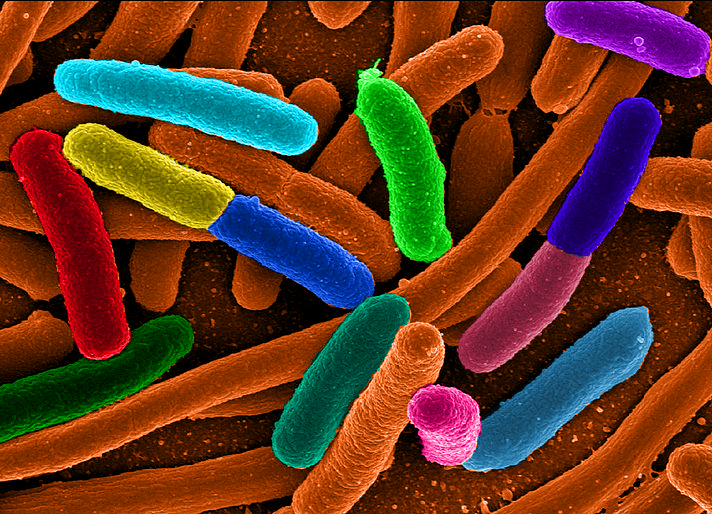Bacteria reproduce by simple fission, that is, they divide into two. Until recently, those two daughter cells were thought to be identical. However, a new study by University of California, San Diego researchers Camilla Rang, Annie Peng and Lin Chao calls that assumption into question. According to their research, not only are the daughter cells not identical, but the differences between them allow bacteria to stay perpetually young.
False color image of E. coli.
Aging in multicellular organisms usually involves irreparable cell damage. As our individual cells accumulate damage, this deterioration is eventually felt in our organs and entire bodies. Single celled organisms also become corrupted over time. It had been thought that an injured cell would distribute that damage evenly between its two daughters. That turns out not to be the case. Instead, each dividing cell preferentially gives one daughter most of the damage. As this cycle goes on, a subset of the bacterial cells remain forever youthful and undamaged.

No comments:
Post a Comment